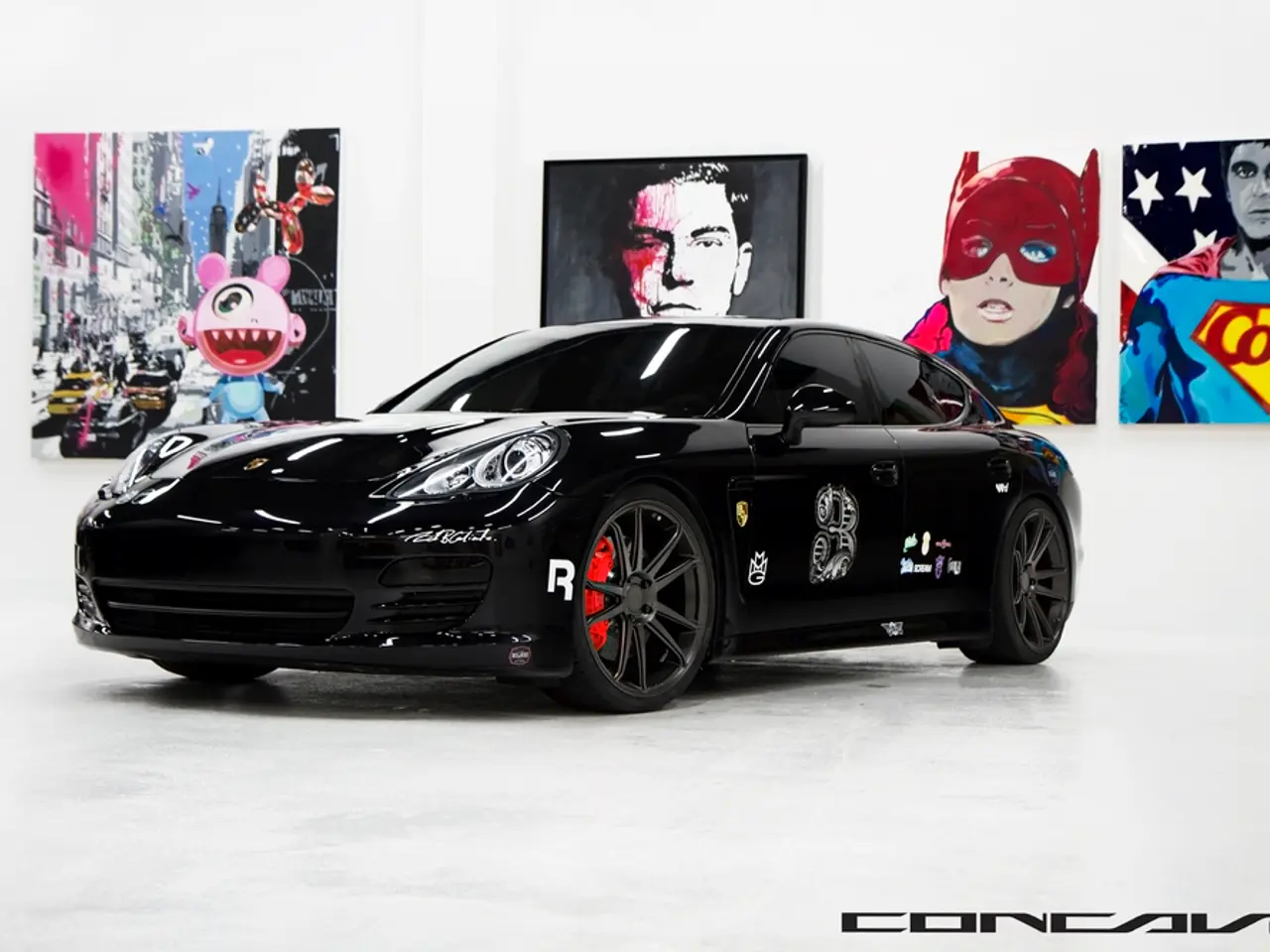Volkswagen's stocks experience a rise - Automotive analyst maintains an atmosphere of apprehension
In the rapidly evolving electric vehicle (EV) market, two automotive giants, Porsche and Volkswagen, are facing a challenging outlook. Both companies are grappling with mixed sales performances, profitability pressures, and strategic adjustments that have raised concerns among industry experts.
Porsche's Struggles
Porsche's EV sales are encountering headwinds in 2025. Deliveries of its flagship EV, the Taycan, declined 6% in the first half of the year to 8,302 units. Overall Porsche deliveries fell 8%, with China sales plunging 42%, a critical market for the brand. Despite the Macan EV showing promise, especially in North America where it accounted for about 60% of Macan sales, the overall demand softness for premium EVs is clear.
As a result, Porsche has abandoned its previous goal of 80% EV sales by 2030 and is redirecting investments towards hybrids and internal combustion engine technologies. Profitability has been significantly squeezed, with Porsche forecasting operating margins of 6.5% to 8% for 2025, down from a historical 12-15%. This decline is attributed to market hesitancy, currency fluctuations, high capital expenditure on EV development, and rising tariffs, notably 27.5% on U.S. imports, adding to costs and pricing pressures.
Volkswagen's Mixed Results
Volkswagen Group reported a 47% increase in global EV sales in H1 2025, with 465,000 EVs sold, alongside a slight increase in overall vehicle deliveries. Europe showed the strongest growth (nearly 90% increase in EV sales), with VW leading the German EV market. However, Volkswagen faces significant regional challenges. EV sales dropped sharply in China (a third decline), and North America faced steep sales drops, largely due to high U.S. tariffs on imported vehicles.
Despite rising sales, Volkswagen's profits for the first half of 2025 plunged about 38% year-on-year, driven by the lower margins on EVs and the tariff impact. The transition to EVs illustrates a tension between rapidly growing EV volumes and eroding profit margins due to higher costs, tariffs, and significant investments in EV technology and supply chains.
Expert Concerns
Experts are concerned primarily because both Porsche and Volkswagen struggle with profitability erosion despite EV sales increases, largely due to high tariffs, rising costs, and lower margins on electric models. The market share losses in China and sharp sales declines in North America add to the uncertainty, given these are key EV growth markets facing intensifying competition and trade barriers.
Porsche's pullback from ambitious EV targets signals industry-wide doubts about the pace and economics of EV adoption, particularly for premium brands facing consumer hesitancy and mixed infrastructure readiness. For Volkswagen, the growing sales contrast with falling profit margins reflects the broader challenge of balancing financial stability with the necessary investment in EV technology and adapting to new market realities.
In summary, while Volkswagen leads in EV sales volume growth, both brands face critical profitability challenges and market share pressures, especially in China and North America. These challenges have led experts to worry about the sustainability of their EV strategies and the impact of geopolitical trade tensions and market competition on their future prospects.
- The concerns among industry experts about the financial outlook of Porsche and Volkswagen in the electric vehicle industry are heightened by the profitability erosion experienced by both companies despite increases in EV sales, which is primarily due to high tariffs, rising costs, and lower margins on electric models.
- In the race to adapt to the evolving electric vehicle market, experts are worrying about the sustainability of the EV strategies of Porsche and Volkswagen, particularly due to the critical profitability challenges and market share pressures they are facing in key markets like China and North America, which are experiencing intensified competition and trade barriers.




